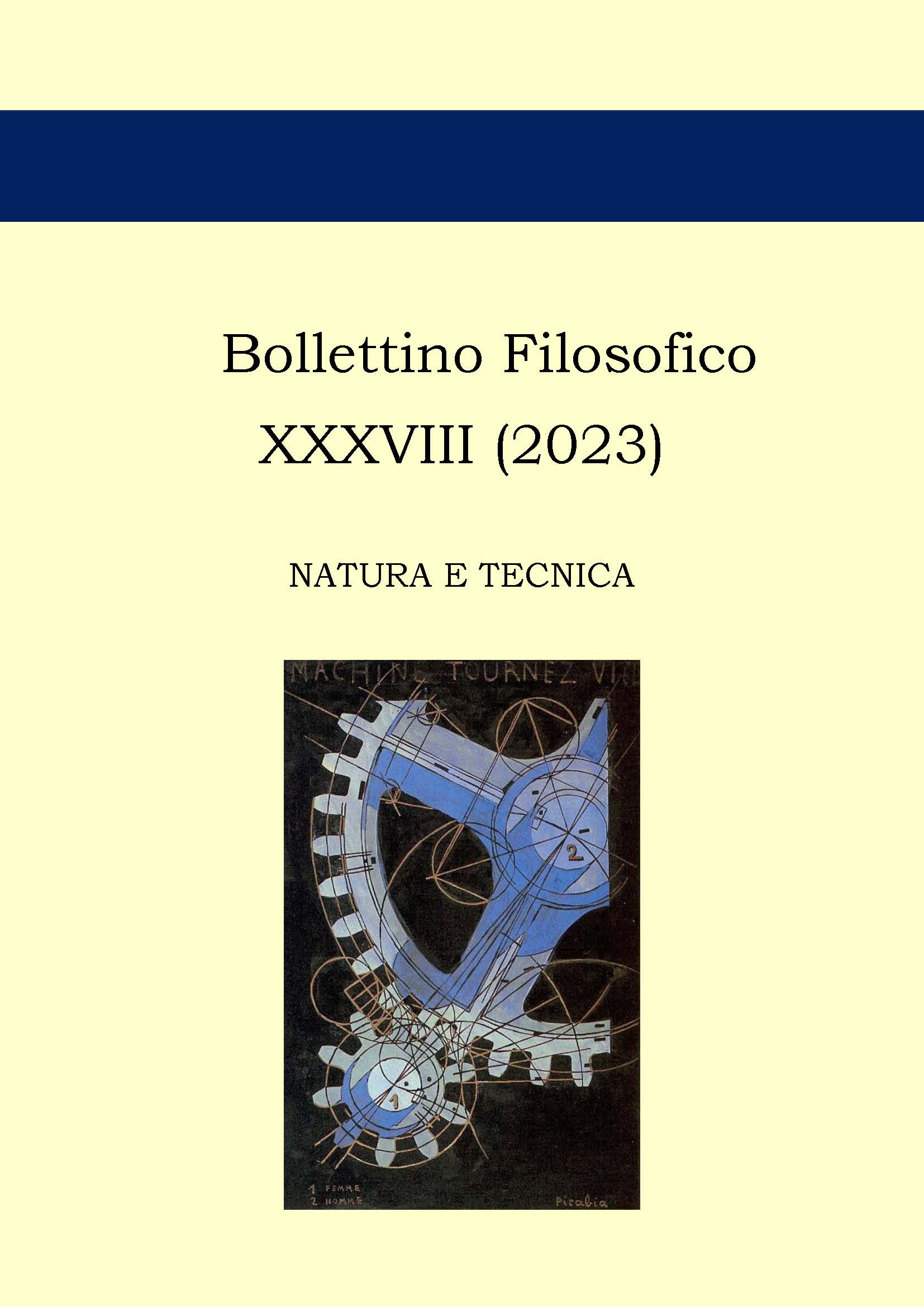Dove si nasconde la natura in un'«era sintetica»
Abstract
The essay starts from what Hegel defined as the enigma of nature, i.e. the internal contrast in the constitutive reference of the human being to it. The purpose is to underline that this “anthropocentric” definition still intercepts the issue of safeguarding the biosphere from the intrusiveness of human intervention, which has become central. Starting from the analysis of the relationship between nature and technology in Aristotle, this contrast is developed as an antithesis between the human desire to save the fragility of nature and the desire to escape from it. It is pointed out how even this escape into a completely technicized reality, is generated by the desire to save the nature. Today, the tragic human involvement in the fragility of nature, in an advanced technological world, help us to rediscover the deepest meaning of “salvation”: taking care of the habitability of the world for human beings, and therefore guarding its fragility, without trying to eliminate it.
Keywords: Anthropocentrism, Aristotle, Nature, Salvation, Technology
Downloads
Bollettino Filosofico pubblica in internet, ad accesso aperto, con licenza:
|
|
CCPL Creative Commons Attribution |
L'autore conserva il copyright sul suo contributo, consentendo tuttavia a chiunque "di riprodurre, distribuire, comunicare al pubblico, esporre in pubblico, rappresentare, eseguire e recitare l'opera", purché siano correttamente citati l'autore e il titolo della rivista. L’autore, al momento della proposta di pubblicazione, è inoltre tenuto a dichiarare che il contenuto e l’organizzazione dell’opera è originale e non compromette in alcun modo i diritti di terzi, né gli obblighi connessi alla salvaguardia di diritti morali ed economici di altri autori o di altri aventi diritto, sia per testi, immagini, foto, tabelle, sia per altre parti di cui il contributo può essere composto. L’autore dichiara altresì di essere a conoscenza delle sanzioni previste dal codice penale e dalle leggi speciali per l’ipotesi di falsità in atti ed uso di atti falsi, e che pertanto Bollettino Filosofico è esente da qualsiasi responsabilità di qualsivoglia natura, civile, amministrativa o penale, e sarà dall'autore tenuta indenne da qualsiasi richiesta o rivendicazione da parte di terzi.
